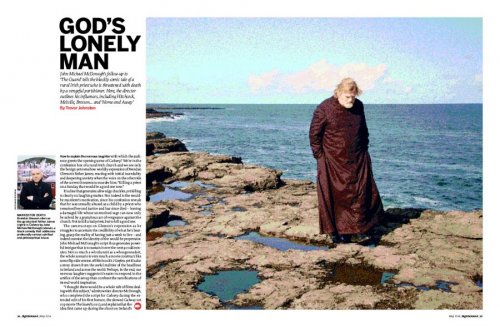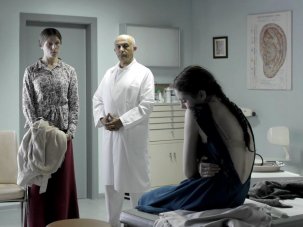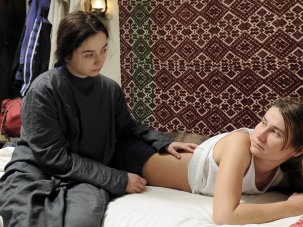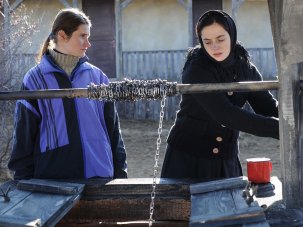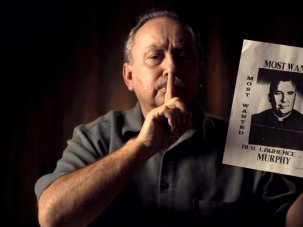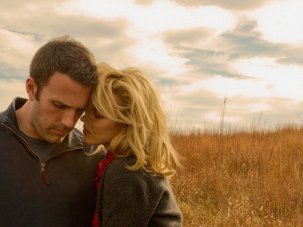from our May 2014 issue
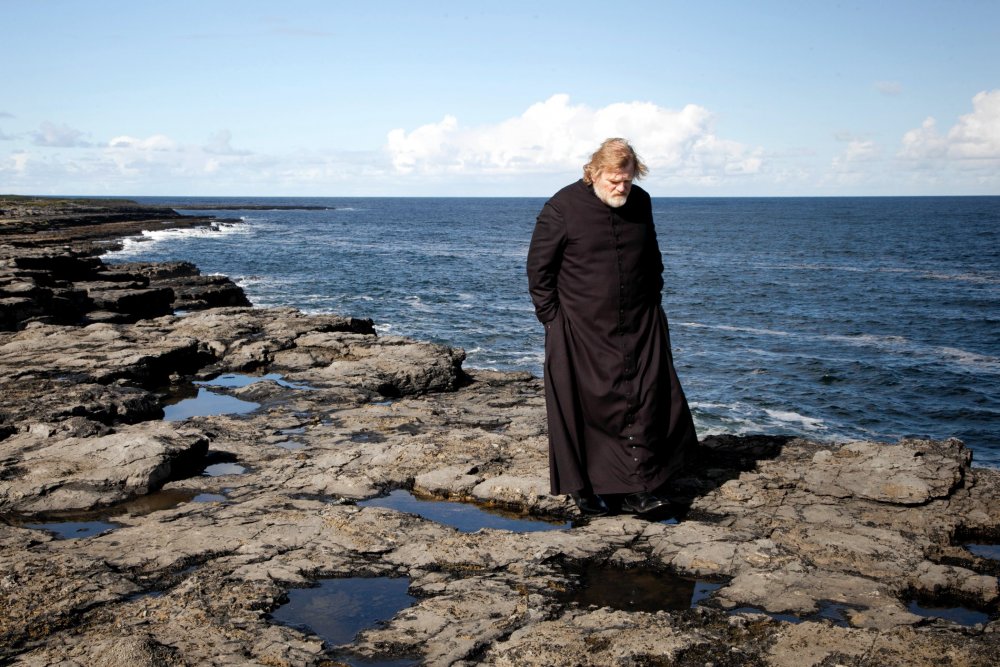
Calvary (2013)
Considerably darker than his 2011 comedy thriller The Guard, John Michael McDonagh’s second feature proposes a teasing but highly serious examination of the question of faith and uncertainty. The director’s statement summarises Calvary thus: “The mise en scène indebted to Andrew Wyeth. The philosophy to Jean Améry. The transcendental style inspired by Robert Bresson.”
United Kingdom/Ireland 2013
Writer-director John Michael McDonagh
Certificate 15 100m 52s
Cast
Father James Lavelle Brendan Gleeson
Jack Brennan Chris O’Dowd
Fiona Kelly Reilly
doctor Aidan Gillen
Michael Fitzgerald Dylan Moran
Simon Isaach de Bankolé
Gerald Ryan M. Emmet Walsh
Distributor E1 Films
UK release date 11 April 2014
► Trailer
The film’s coastlines and fields – shot by Larry Smith, sometimes in ominously swooping aerial shots – echo Wyeth’s landscape paintings, and one can see how the questioning of brutality and inhumanity might be influenced by Austrian-born essayist Améry and his writing on the Holocaust. As for Bresson, Calvary has a livelier tone than “transcendental style” might suggest. McDonagh has also described his film as “Bresson’s Diary of a Country Priest with a few gags thrown in”. Gags apart, it might be more accurately summed up as a hybrid between Bresson’s Diary and High Noon – Calvary too climaxes in its solitary hero striding alone to his appointed showdown.
Calvary announces at the start that it will be as much a self-conscious black comedy as The Guard. It begins with an unseen man in a confessional, announcing, “I first tasted semen when I was seven years old,” to which Brendan Gleeson’s priest replies, “Certainly a startling opening line.” Later it is remarked that we might expect “third-act revelations”.
In fact there are no such revelations, except the identity of the eventual killer, which hardly comes as a surprise, and which his victim – the priest – knows all along. More important is the question of how the priest faces his death, and how he achieves the stature of a Christ-like figure resisting the temptation to lose faith.
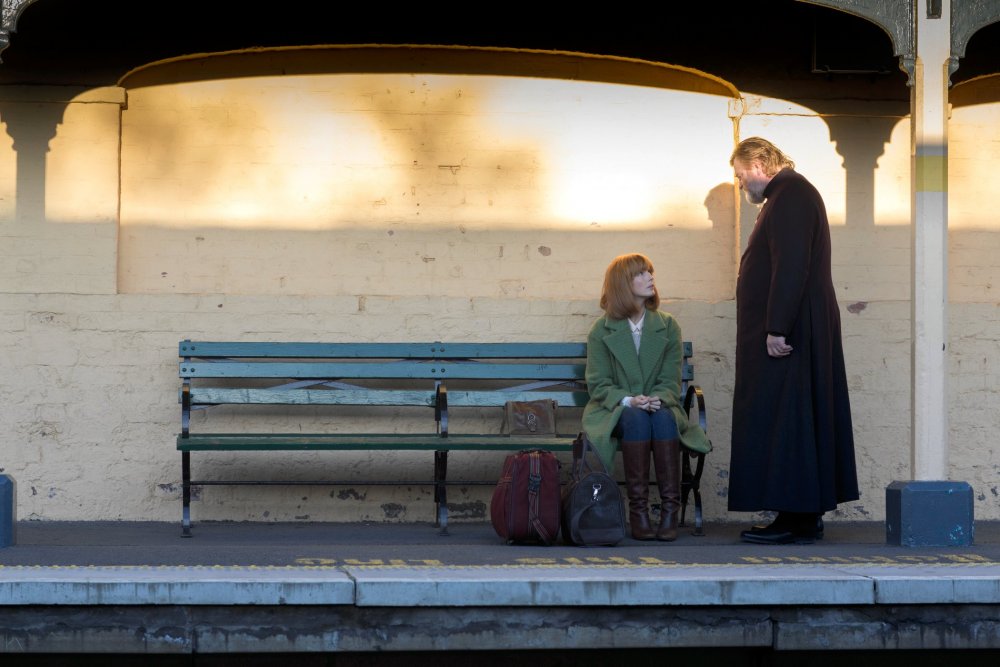
Calvary (2013)
The film’s claim to moral and philosophical substance rests partly on the formidable shoulders of Brendan Gleeson, whose muscularity as an actor makes him more than credible as a man wrestling with the dark forces of human fallibility. Gleeson has played charismatic criminals in his time, notably in John Boorman’s The General (1998), while his Gerry Boyle in The Guard was a seemingly corrupt man who proved an implacable force for justice.
Echoes of Gleeson’s Boyle add resonance to Calvary, where we perceive Father James (his name only revealed late in the film, in a casual aside) as all the more plausible an embodiment of good because he’s knocked about a bit. Father James is, Calvary suggests, the best sort of priest, one who has been both of the world and in it, and who has chosen to reject the secular life from a position of experience: surely a more robust role model for an endangered profession than the etiolated young sufferer of Bresson’s film.
James has been married, is a father, and has contended with a drink problem, and while his nemesis sees him as innocent, James is anything but; he understands the struggles of others because he knows the world. In a poignant, beautifully acted dialogue on the beach, his adult daughter (Kelly Reilly) reminds him of his own lapses, notably the fact that, in opting for the cloth, he has left her feeling abandoned.
Meanwhile, the local community aggressively challenges James’s faith, just as in Bresson’s film. Financier Michael fancies himself a man of culture yet values nothing; at once horrified and perversely proud of what he has become, he taunts James with an act of iconoclasm involving Holbein’s The Ambassadors. Others try to rattle James in different ways: butcher’s wife Veronica spices up her confessions, and her lover Simon is brutally frank about their affair. But James is hardly shocked by sexual transgressions: he is only too happy for local boy Milo to sublimate his potential violence through pornography. And he is the only person to feel compassion for cannibal murderer Freddie.
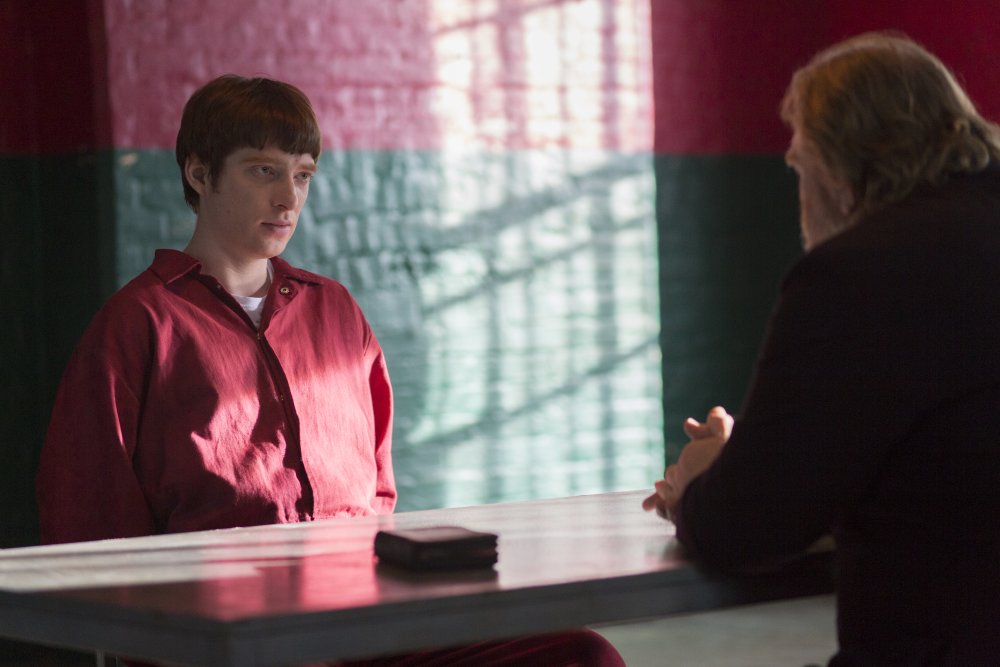
Calvary (2014)
One person who does trouble James, however, is medic Frank; he may joke about his own stereotypical role as “the atheist doctor” but he cuts deep into James’s belief by telling a grim anecdote about a child accidentally paralysed in an operation. “Why the fuck would you tell me a story like that?” James reacts furiously, on the night that finally makes him hit the bottle.
What everyone seems to resent is James’s ability to face up to the complexity and brutality of the world. How dare he keep faith when the world is all but impossible to reconcile with the idea of a merciful God?
Articulating these characters’ fury, Calvary emerges directly from the current crisis of Irish Catholicism brought about by sexual abuse by priests and its institutional covering-up. The theme is most explicitly displayed when James has a friendly conversation with a young girl, only for her angry father to intervene, equating cassocks with paedophilia. Meanwhile publican Brendan, threatened with foreclosure, furiously demands to know why the Church doesn’t condemn the banks. Nevertheless, Calvary ends, à la Bresson, by affirming the possibility of grace: hence a closing prison scene in the manner of Pickpocket (1959).
Calvary’s main flaw is that it feels a little overstuffed with character eccentricities, notably in the Anthony Perkins twitchiness of the sexually frustrated Milo or rent-boy Leo’s relentless Cagney impersonations. But Gleeson’s magnificent intensity and the palpable wit and intelligence of the film’s conception make Calvary an audacious advance on The Guard. This is not only a provocatively involving thriller but a true rarity in cinema – a genuinely compelling moral and theological investigation.
In the May 2014 issue of Sight & Sound
God’s lonely man
John Michael McDonagh’s follow-up to The Guard tells the blacky comic tale of a rural Irish priest who is threatened with death by a vengeful parishioner. Here, the director outlines his influences, including Hitchcock, Melville, Bresson… and Home and Away.
-
Sight & Sound: the May 2014 issue

Everything you needed to know about Hollywood before the censor, plus Walerian Borowczyk reappraised, Lukas Moodysson on We Are the Best!, John...
-
The Digital Edition and Archive quick link
Log in here to your digital edition and archive subscription, take a look at the packages on offer and buy a subscription.




